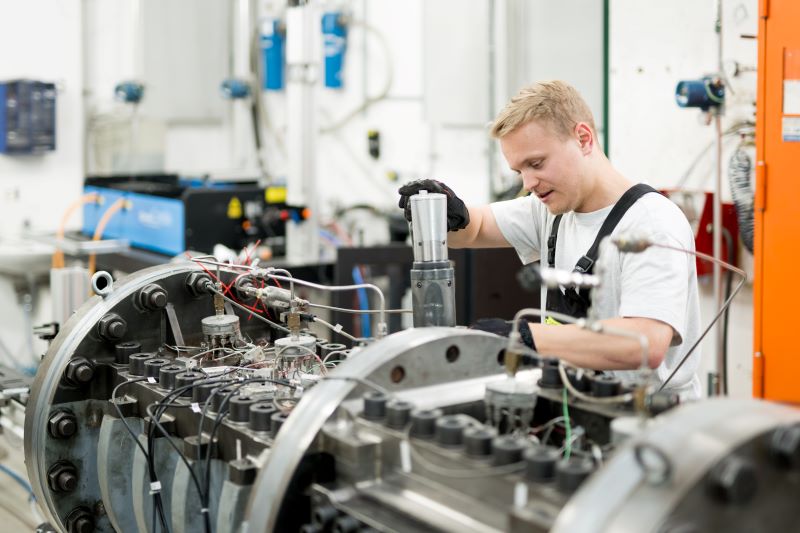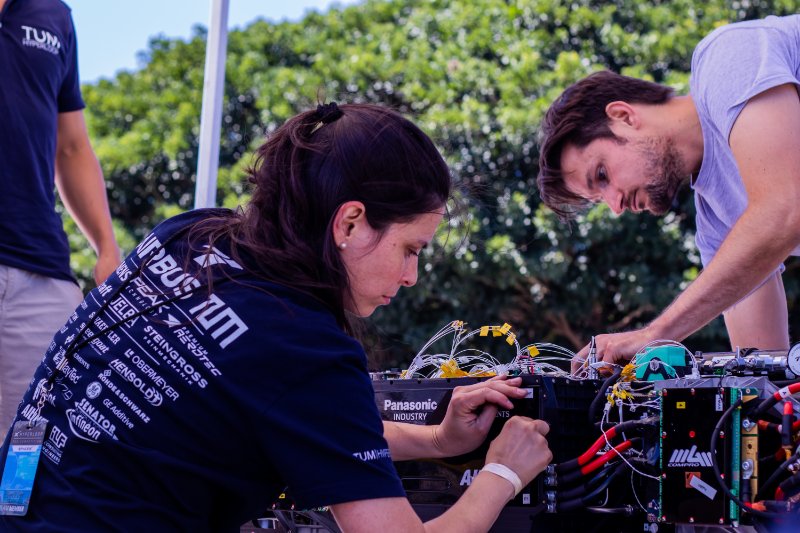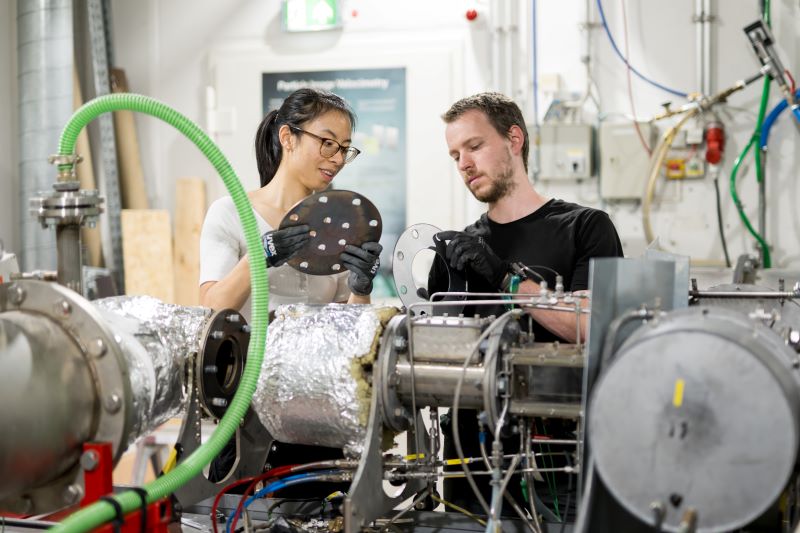The Professorship aims to accelerate the world’s transition towards a highly efficient, safe, and low emission future by extending fundamental science and industry knowledge in energy and propulsion technologies of tomorrow. To achieve this, we develop leading edge chemical kinetic models and experimental techniques in the fields of reactive gas dynamics.
The energy and transportation sectors are on the onset of a technology revolution using synthetic fuels and electrification, new materials, and digitization. The focus on often radically new technologies allows our Professorship to participate in and impact the advances of this revolution. Specifically, our research builds on three pillars,
fuels, combustion dynamics, emissions,
reliability and safety, and
unconventional technologies, that address near term needs while preparing for implementing future visions.
In pillar 1., we study novel hydrogen H2 combustor concepts in aviation and their thermoacoustics [WAKOS, GreenerRQL, HESTIA, H2LoNOCs projects], dual-fuel combustion of ammonia/diesel in shipping [AmmoniaMot2 project], and chemical kinetic mechanism generation for Sustainable Aviation Fuel (SAF) surrogates [SAFMech project]. In pillar 2., we investigate the flammability of H2 and its mixtures as well as of hydrofluorocarbons (HFC) [H2CORisk, ExRef projects], and in pillar 3., we conduct noise-related and visual impact experiments and simulations of emerging air mobility technology [HOAMAT project]. Besides, we advance the Hyperloop technology [TUM Hyperloop Programme].
The Assistant Professorship of Sustainable Future Mobility is part of the TUM School of Engineering and Design, Department of Aerospace and Geodesy, and aims to motivate students to develop modern technology for today and tomorrow.


